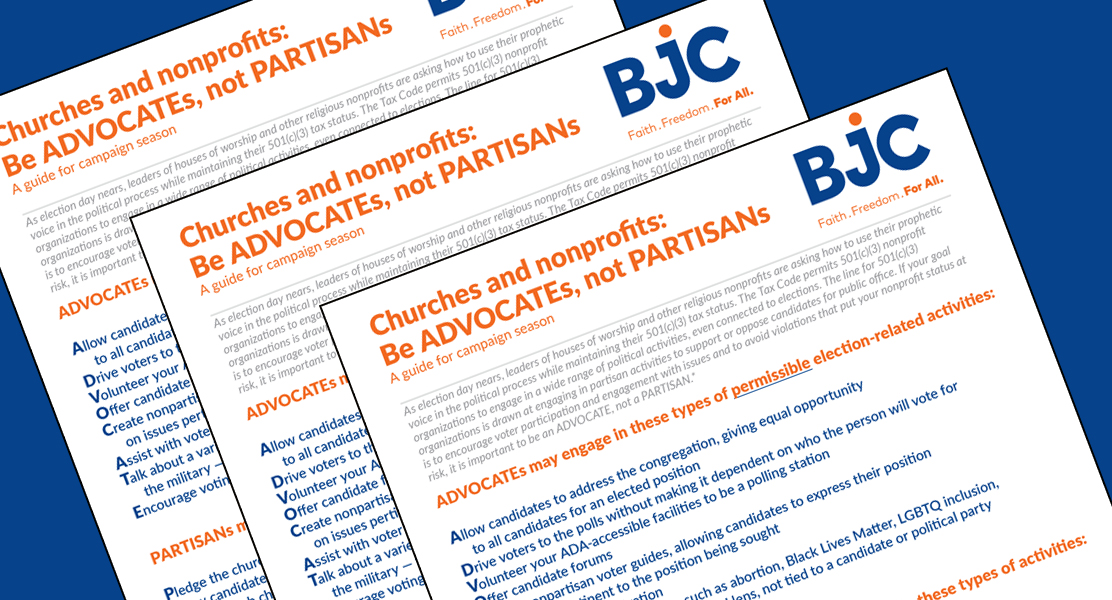How churches can be advocates, not partisans, during election season

Can you believe it? Another election season is right on top of us. For ministers and their congregations, that often means walking a thin but important line. Houses of worship want to be true to their beliefs and speak out with a prophetic voice about the issues of the day. But at the same time, they want to avoid being partisan, or engaging in electioneering, which can not only jeopardize their tax-exempt status, it can also cause harmful conflict among worshippers.
Fortunately, people of faith do not have to choose. We can engage collectively on political issues while steering our churches clear of partisan politics. A good starting place is educating ourselves on the rules for 501(c)(3) groups and what the Tax Code, which includes the Johnson Amendment, allows. BJC has put together a super helpful one-page guide for churches and nonprofits during election season – check it out!
The guide lists permissible activities, like assisting with voter registration, offering candidate forums, and talking about a variety of issues from a theological perspective, rather than candidate or political party-driven perspective.
It also describes a range of activities that may run afoul of the tax code and should be avoided, like pledging the church’s support of a particular candidate or party, distributing a candidate’s campaign materials, telling the congregation which candidate to support or which candidate to oppose, or providing your congregation’s mailing list to one candidate but not another.
As the guide says, “the line for 501(c)(3) organizations is drawn at engaging in partisan activities to support or oppose candidates for public office. If your goal is to encourage voter participation and engagement with issues and to avoid violations that put your nonprofit status at risk, it is important to be an ADVOCATE, not a PARTISAN.”
For more on the topic of church electioneering, see BJC’s page on the Johnson Amendment entitled “Community Not Candidates” and their list of Johnson Amendment resources. President Donald Trump is fond of claiming his administration dismantled the protections found in the Johnson Amendment, which protects nonprofit organizations (including houses of worship) from the dangers in engaging in partisan politics. But, thankfully, the Johnson Amendment is alive and well after Congress turned back efforts to repeal it.
This article is part of the Faith Freedom 2020 collaboration. See other resources at FaithFreedom2020.org.




